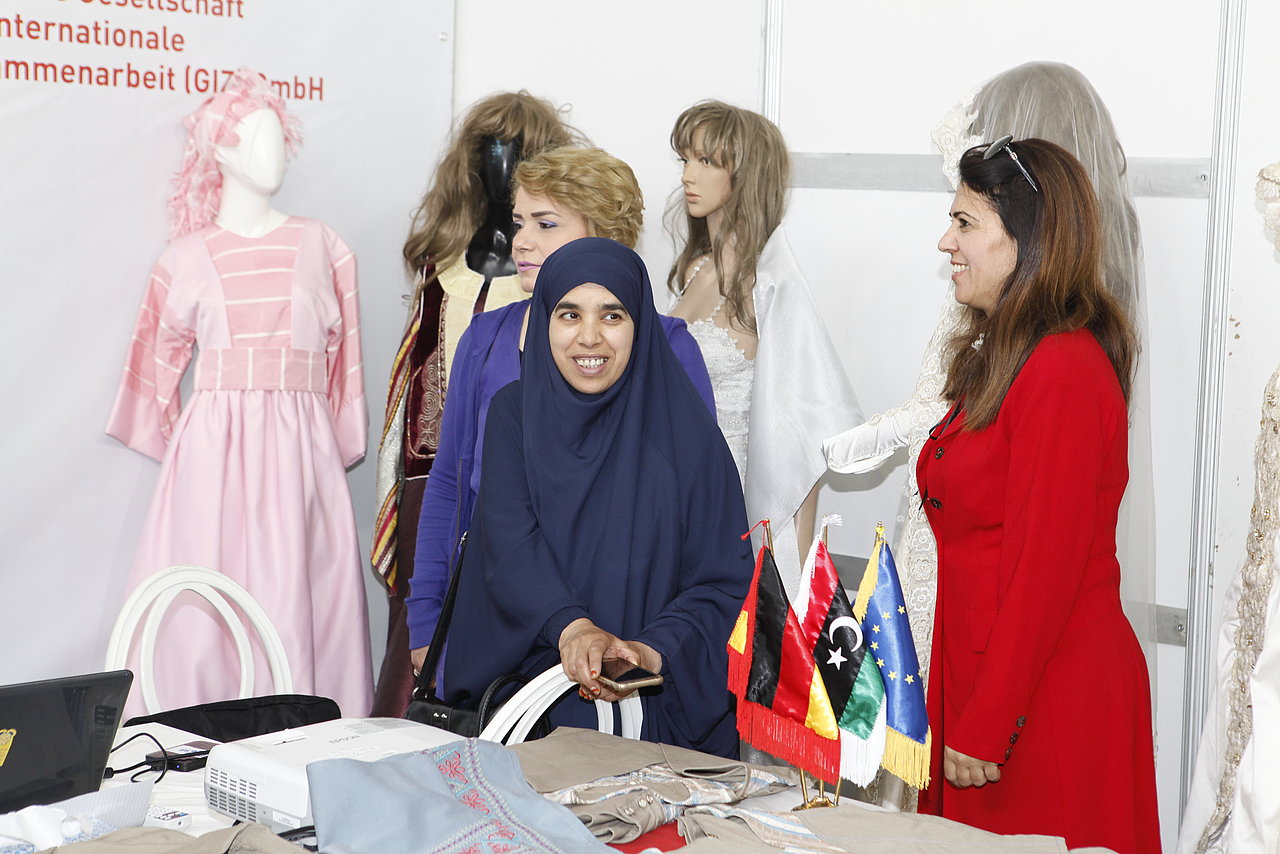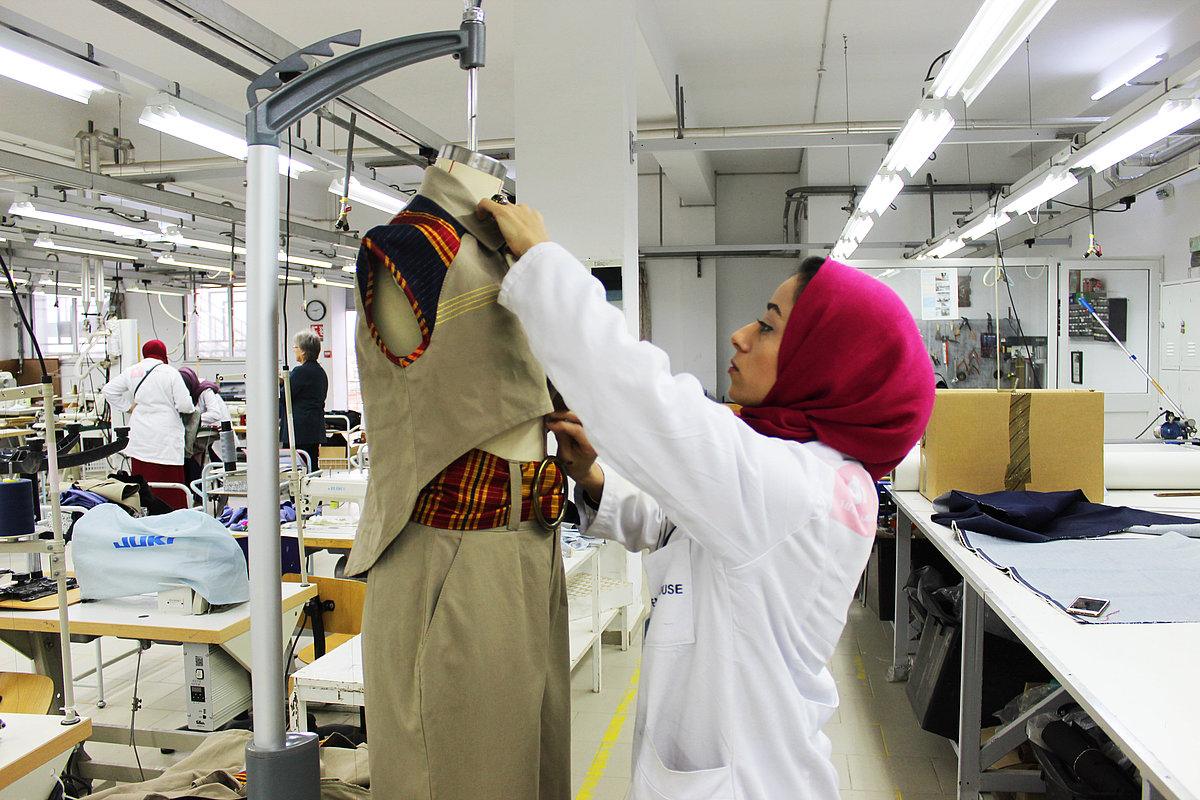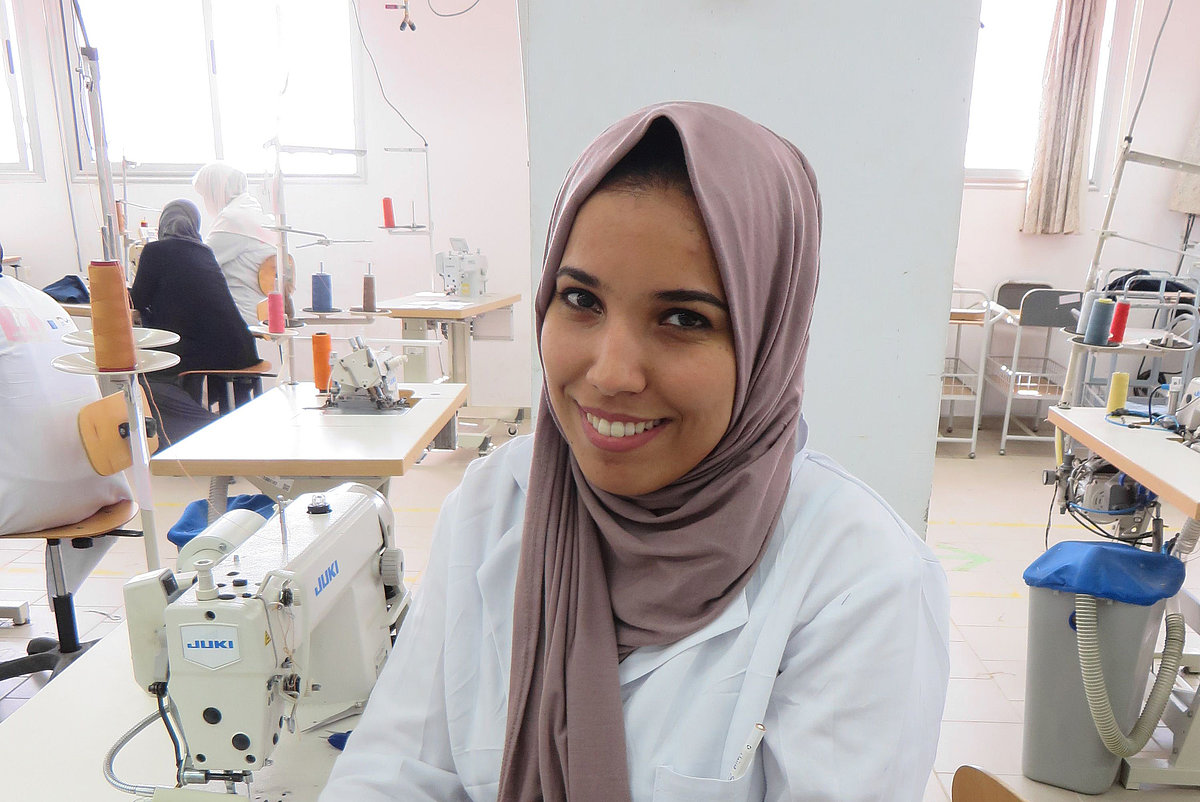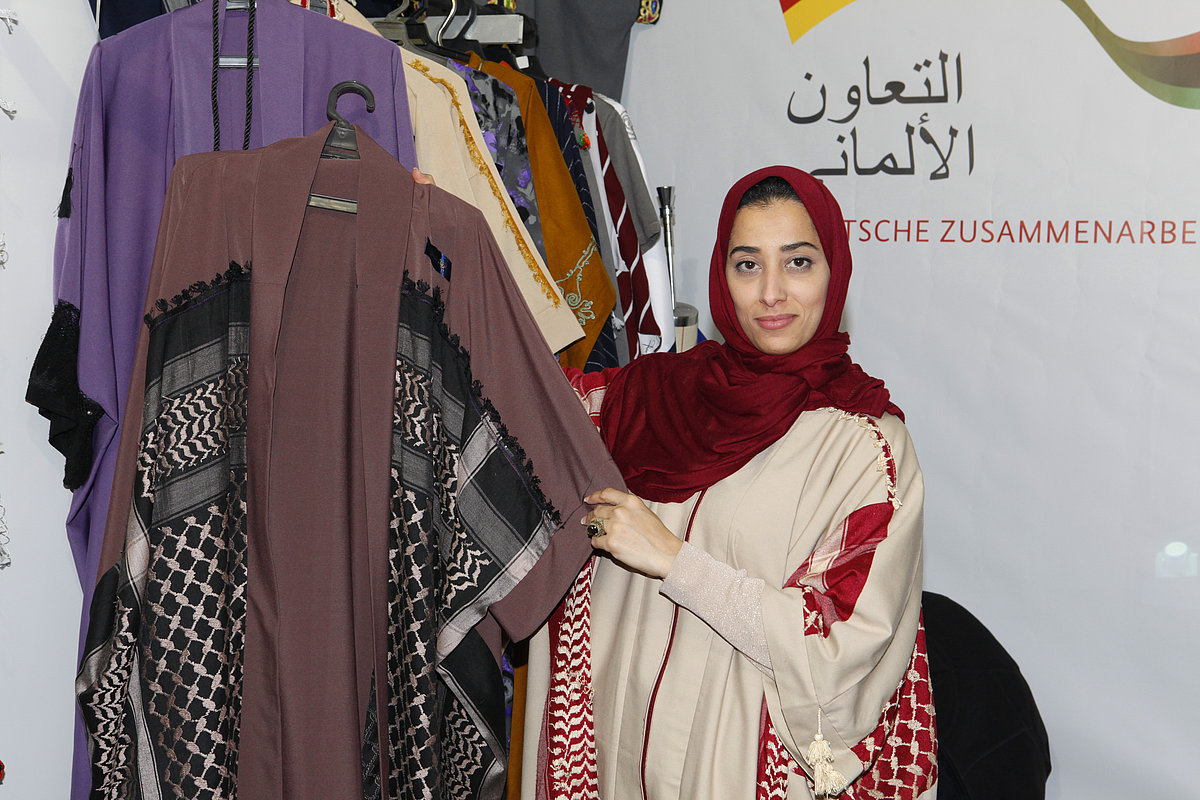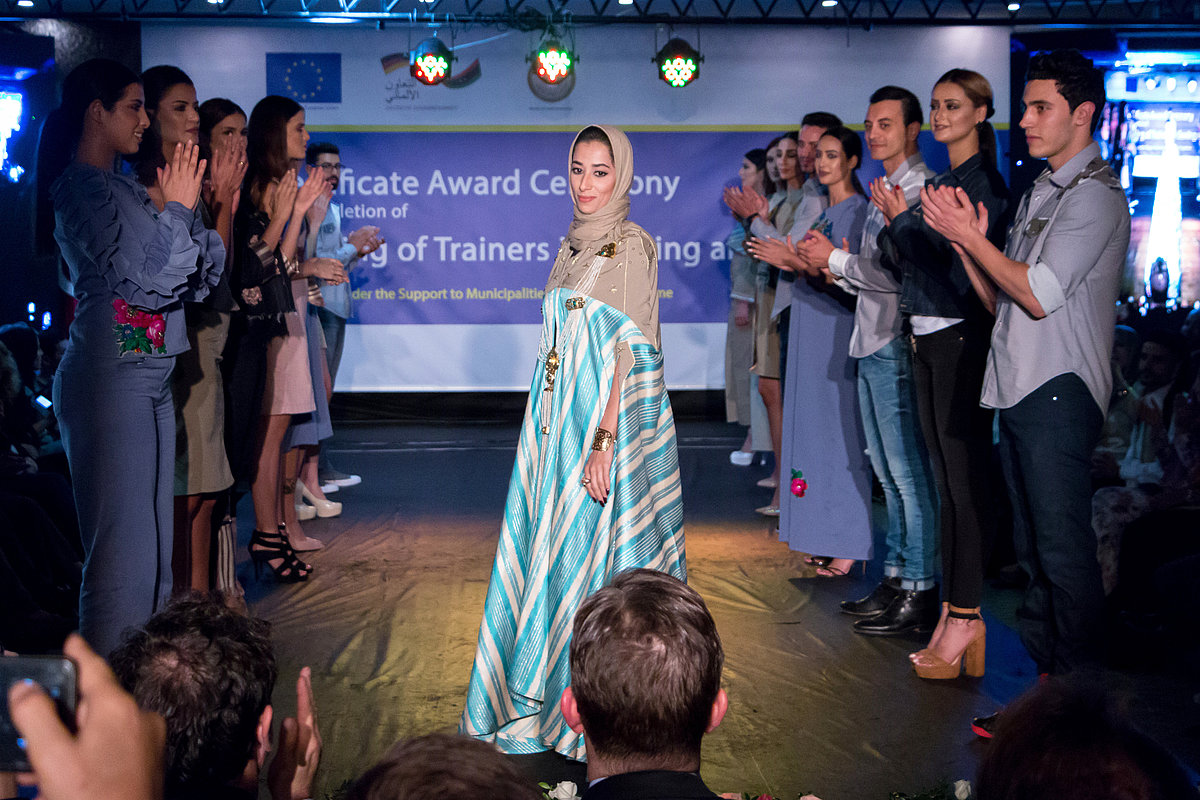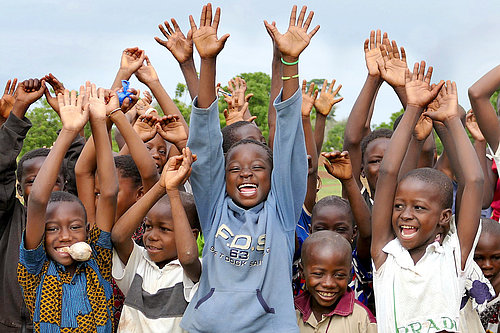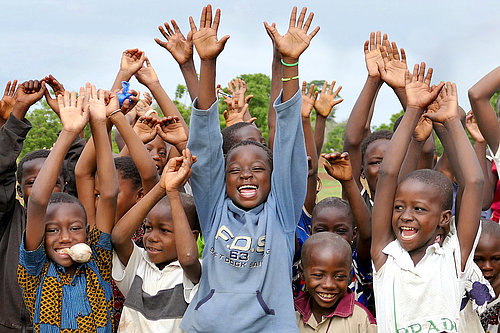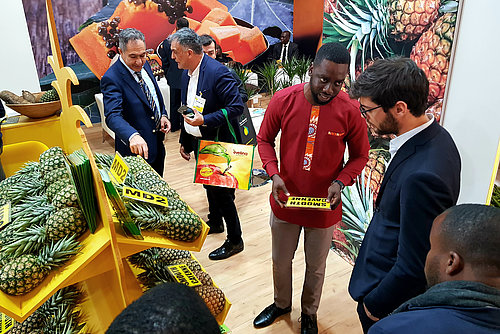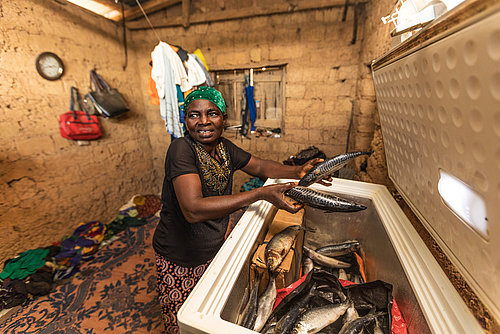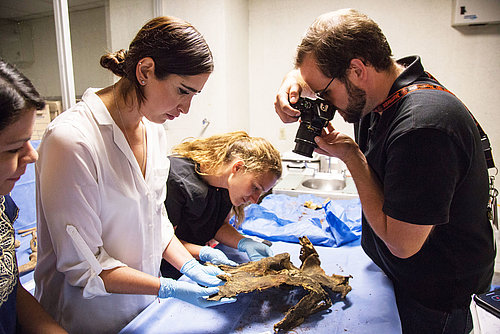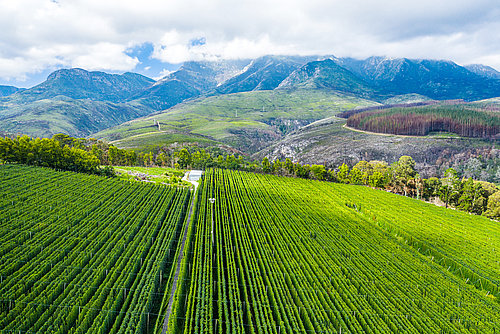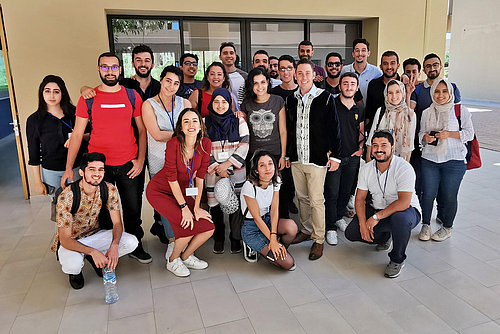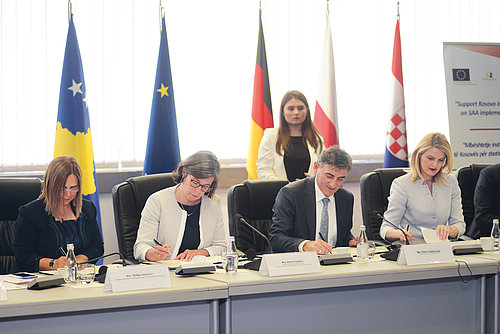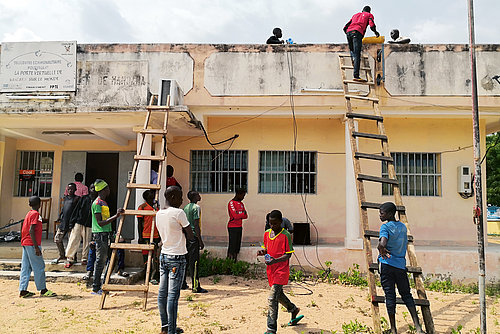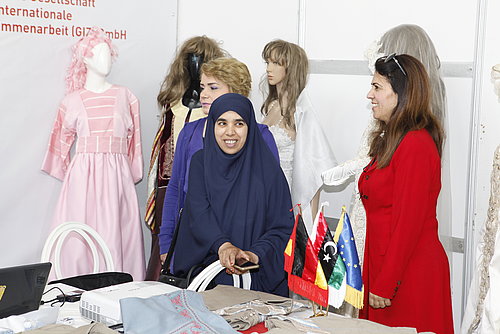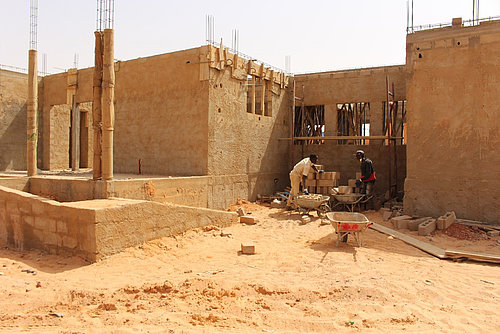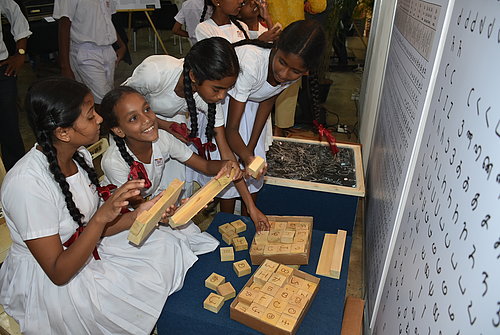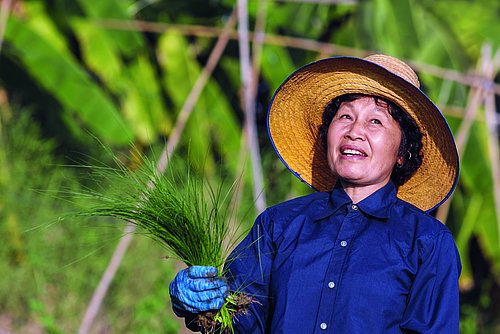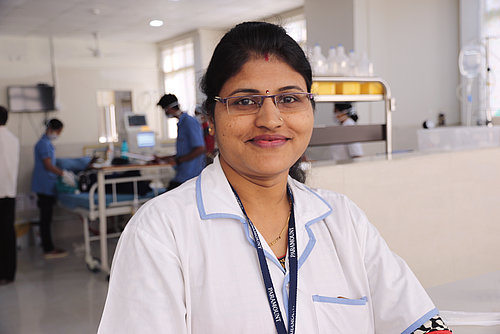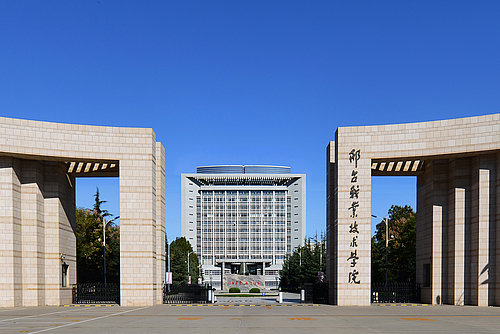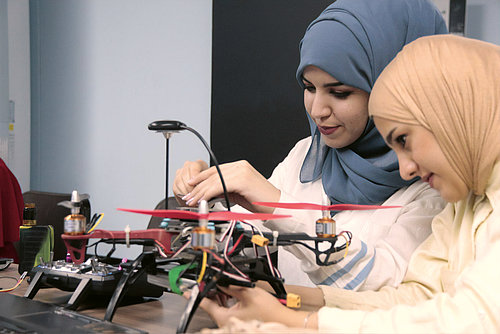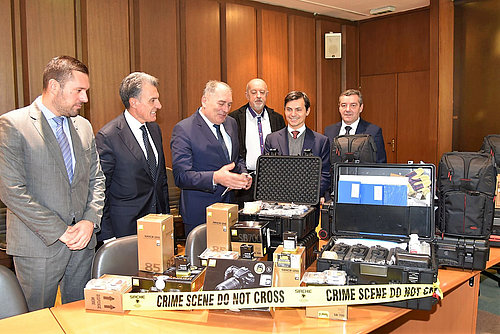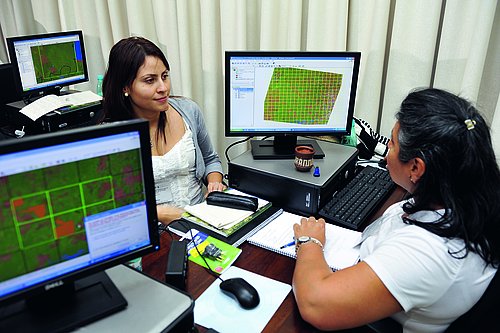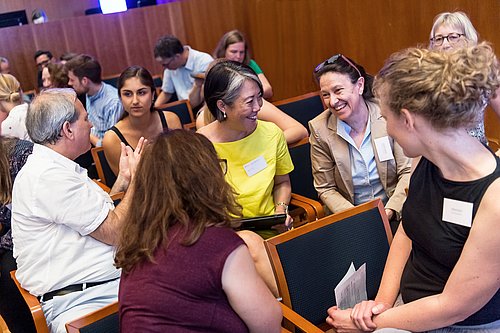Souad Khalifa is a really special women’s rights activist. She encourages other Libyan women to gain economic independence and acquire social skills for the job market – and is doing so in the middle of a civil war. She is spreading hope in dark times. Khalifa sits on the management board of the Women’s Development and Training Centre in Hay al-Andalus – the first of 10 centres that are being set up in Libya with support from GIZ on behalf of BMZ and the EU.
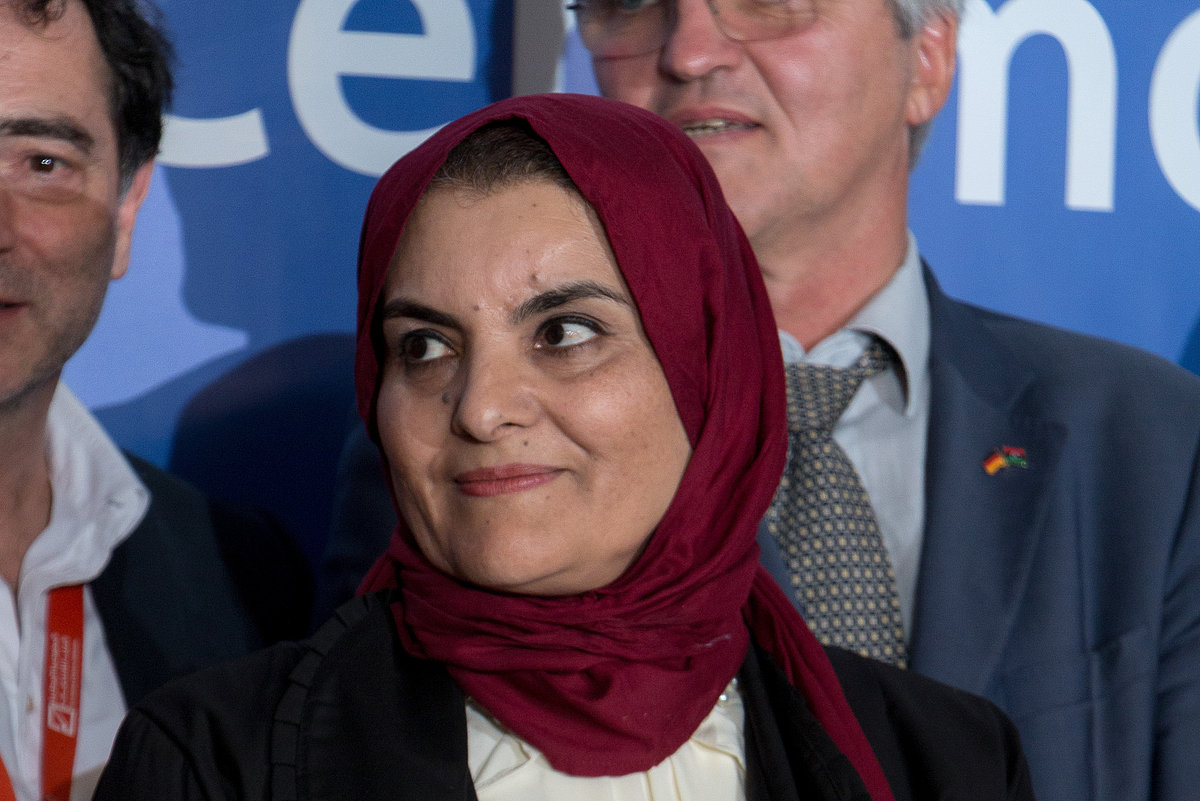
(© GIZ / Maher Zoubeidi)
At these centres, women can take courses in sewing and tailoring and learn how to build their self-confidence at work, for instance through computer classes, presentation courses or English lessons. The participants have also accepted some job orders, including making bed sheets for hospitals. Twenty-six textile processing trainers are already sharing what they know. In April 2019, some of the women even showcased pieces of clothing that they had designed and manufactured at an international textiles fair in Tunisia. ‘It’s about so much more than putting women in front of a sewing machine here,’ says Khalifa. ‘It’s a process of raising awareness and about teaching women to develop confidence in their own skills.’
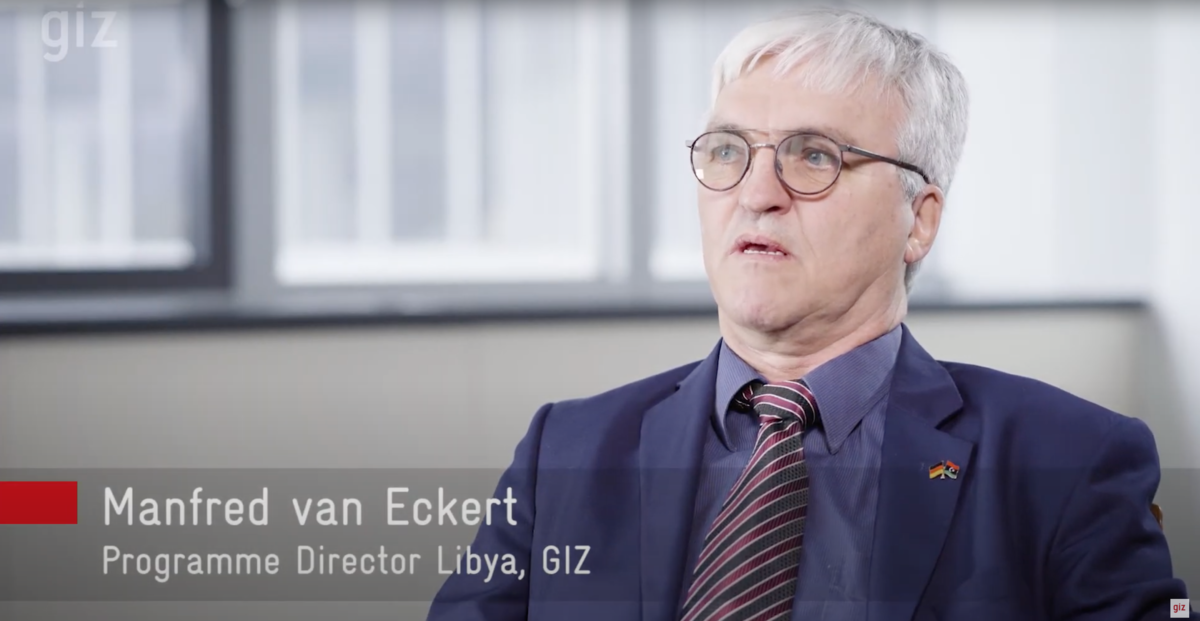
Manfred van Eckert talks about how important remote management is in fragile contexts. (In German with English subtitles)
You can also read the interview with Manfred van Eckert here.
The centre in Hay al-Andalus, a district of Tripoli, is part of a larger programme aiming to bring about improvements within municipalities in Libya. When the central government falters because of the political climate, it is up to municipalities to care for people. The aim is to ensure that they gain or retain an ability to operate, even in difficult times, for instance through economic stimulus measures, training, better water supply, new sports facilities – or women’s training centres. Municipalities are selected using criteria defined with Libyan partners and commissioning parties. This means that GIZ is only working in places where other implementing organisations are not already operating to avoid duplication. Some 17 municipalities throughout the country are taking part at the moment. More than 1.4 million people will potentially be reached as a result.

Libyan women present traditional Libyan clothing at the Intertex international textiles fair in Tunisia. (In Arabic with English subtitles)
The public is involved in deciding where the need is greatest. More than 1,000 residents participated in dialogue forums where they took joint decisions about which measures are important to improving basic public services. Approximately 1,200 projects big and small were selected by the end of 2019; more than 100 of them are under way. For instance, 16 municipalities already have environmental laboratories where they can test drinking water and food quality. And while one women’s centre is already up and running, nine others are in the process of being set up. An e-learning centre has also been created to offer young people courses in subjects like photography and writing.
The special thing about this project is that GIZ is managing measures remotely from neighbouring Tunisia because of the security situation. National staff are working in Libya itself. This approach is delivering significant progress despite the war. Souad Khalifa also completed her training in Tunis and took what she learned back to Libya with her. She is considered a shining example in Libya because of her dedication to the cause of women’s empowerment.
Remote management reduces risk
Libya is embroiled in a civil war that poses a significant risk to life and limb. This means that GIZ’s international staff can only travel to the country in very particular cases with approval from the German Government. GIZ is managing projects from its office in Tunis so that it can provide Libya with continuous support, especially in the current climate. Specifically, this means that the majority of work is performed by
national staff in the country who are in constant contact with Tunis using all kinds of modern methods of communication. Their safety and security is of the utmost importance to GIZ. That’s why they are covered by a special security system involving specific measures in response to the situation on the ground. These measures can range from working from home to temporary relocation to safer places within Libya.
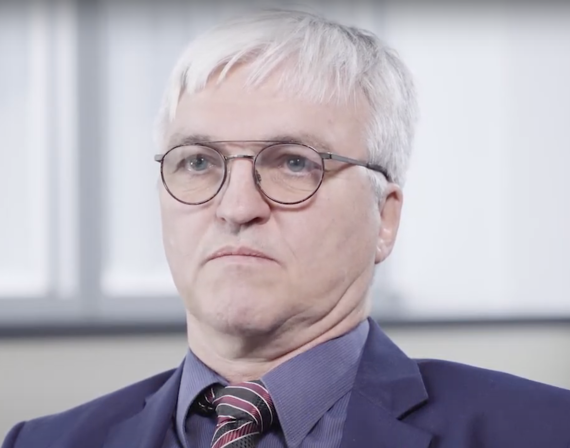
Remote management at GIZ
In this interview, Manfred van Eckert, programme director Libya, explains how remote management works and how it is used at GIZ.
More and more countries are considered to be fragile. What does that mean for GIZ’s work?
GIZ is working more and more often in fragile contexts on behalf of the German Government and other donors. This means that we have to tailor our projects to the situation in order to ensure that the general public has food security, access to basic health care services and a reliable electricity and water supply.
How does remote management work?
Increasingly, GIZ is opting for a remote management approach in fragile contexts. We use this when our international staff cannot work directly with our partners on the ground, but instead work from neighbouring countries. They have to adjust their project strategies to ensure the provision of basic health care services, food security and water supply. This process requires strong lines of communication with partners and national staff during project implementation.
What role does digitalisation play in this process?
Remote management would be impossible without digitalisation. The modern communication tools we use, such as Skype, allow us to bridge the distance to our partners and national staff.
How do you work in Libya?
I am in charge of programme development in Libya and work in Tunis with a team of international experts. We regularly invite our partners and national staff to Tunis for advisory meetings and planning workshops in order to plan projects and support their implementation. GIZ has to set up a risk management system so that we can work with national staff in fragile contexts. In other words, we have to keep our offices secure, analyse the conflict situation in the countries in question and tailor our implementation measures to the specific security situation.
What have you achieved in Libya?
We have enabled mayors and local councillors to implement their urban development plans in conjunction with the public and we have improved the situation for women. We have set up women’s centres where women receive training in textile processing and make their own textiles. Despite the conflict, our activities in Libya are worthwhile since we are working with our partners to establish lasting structures in cities that give people hope for a better tomorrow.
Insights into our projects in 2019
We are active in some 120 countries with 1,600 projects.
Discover the world of GIZ by learning about examples of projects undertaken in the 2019 reporting year.
We are active in some 120 countries with 1,600 projects.
Discover the world of GIZ by learning about examples of projects undertaken in the 2019 reporting year.
Are you interested in other GIZ projects?
